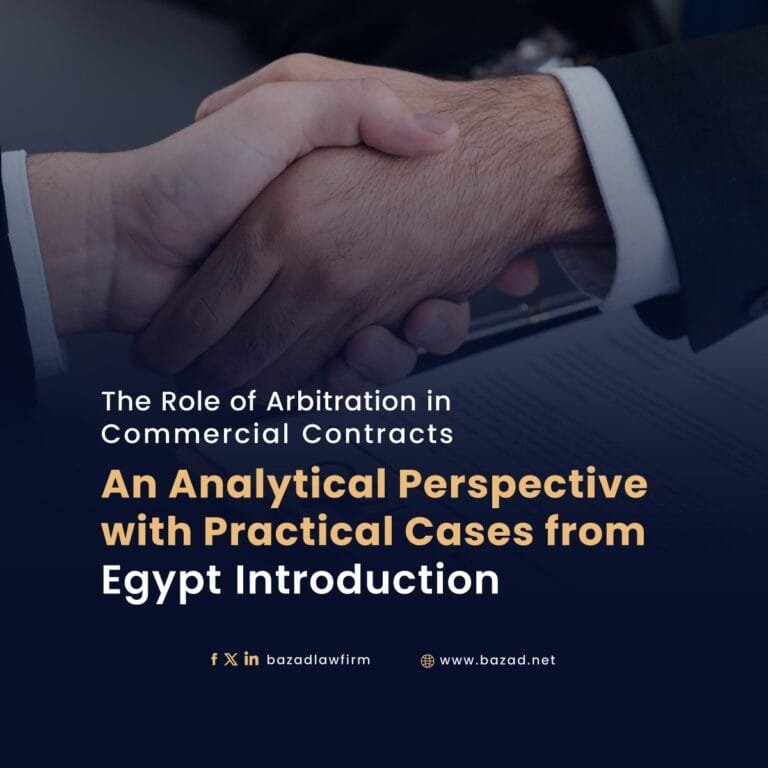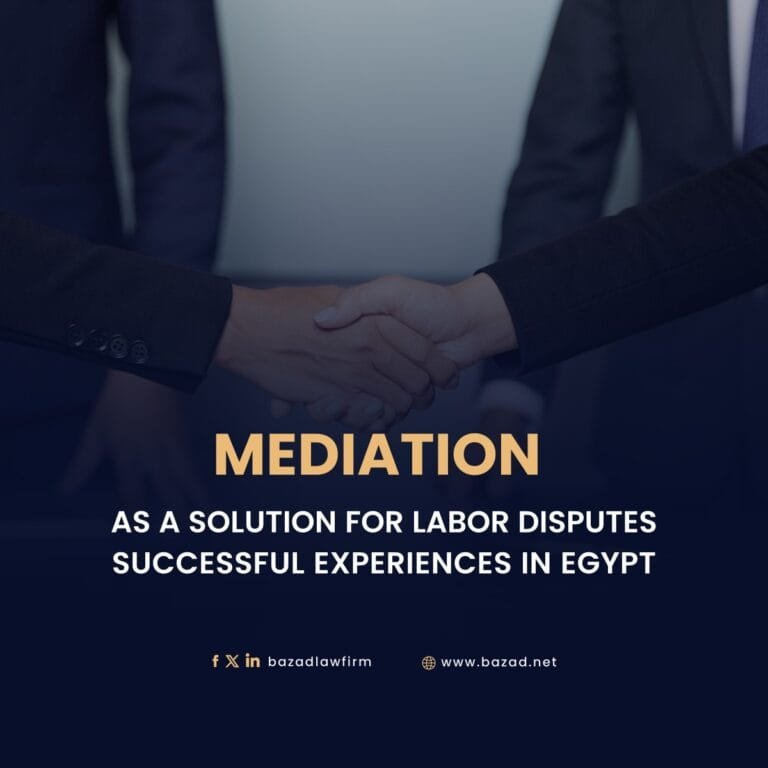
Dispute Resolution in Egypt: Between Judiciary and Alternative Methods – A Comprehensive Guide for Businesses and Individuals
Introduction: The Importance of Dispute Resolution and Its Role in Business Environment
In the dynamic world of business and commerce, which demands flexibility and efficiency in handling disputes, the need for practical solutions outside the judicial framework has become essential to ensure the stability of commercial and civil transactions in Egypt.
Legal methods for dispute resolution have diversified between traditional judiciary and alternative methods, which have gained widespread acceptance due to their ability to save time, reduce costs, and maintain the privacy and confidentiality of clients and transactions.
- Judicial Settlement – The Traditional Option
Egyptian courts are the official authorities designated to adjudicate disputes, operating under a set of laws, primarily the Egyptian Civil and Commercial Procedures Law No. 13 of 1968. Judicial settlement involves several stages:
- Jurisdiction: Courts are assigned based on the nature of the dispute (civil, commercial, administrative).
- Litigation Procedures: These begin with filing a lawsuit, followed by hearings, evidence presentation, and the issuance of a judgment.
Despite the efficiency of the Egyptian judiciary, case backlogs sometimes lead to delays in resolution, prompting many parties to turn to alternative methods.
- Alternative Dispute Resolution (ADR) Methods
- Arbitration – Flexible Justice
Arbitration is one of the most common ADR methods, where parties agree to refer their dispute to an independent arbitral tribunal instead of a court. Under the Egyptian International Commercial Arbitration Law No. 27 of 1994, arbitration offers:- Speed and Privacy: Disputes are resolved within a specified timeframe, maintaining confidentiality.
- Binding Decisions: Arbitration awards carry the force of an enforceable instrument.
- Flexibility: Parties can choose arbitrators and procedural rules.
- Mediation – Consensus-Based Resolution
Mediation is a voluntary process managed by a neutral mediator who assists parties in reaching an amicable agreement. Key advantages of mediation include:- Strict Confidentiality: Ensures the privacy of the dispute.
- Efficiency: Faster and more cost-effective than litigation or arbitration.
- Mutual Satisfaction: Focuses on solutions that meet the mutual interests of the parties.
- Conciliation – Advisory Role of the Third Party
Similar to mediation, conciliation seeks to achieve a friendly settlement. However, the conciliator may offer suggestions or solutions to the parties. - Negotiation – Direct Resolution
Negotiation is a direct method where parties resolve disputes without involving a third party. It is suitable for simpler disputes where direct communication is effective.
III. Advantages and Challenges of ADR
Advantages:
- Reducing Judicial Burden: ADR methods ease the load on overburdened courts.
- Expedited Procedures: Compared to lengthy judicial processes.
- Preserving Relationships: Focuses on collaboration rather than confrontation.
- Lower Costs: Often more affordable than traditional litigation.
Challenges:
- Lack of Qualified Personnel: The need for more experienced mediators and arbitrators.
- Limited Awareness: Insufficient understanding of ADR among individuals and businesses.
- Legislation: While there are existing laws, some mechanisms require further legislative development.
- Legislative Framework Supporting Dispute Resolution in Egypt
- Civil and Commercial Procedures Law No. 13 of 1968: Governs court litigation procedures.
- International Commercial Arbitration Law No. 27 of 1994: Provides the legal framework for arbitration.
- Investment Laws: Encourage arbitration to resolve investor disputes.
- Conclusion – Towards a More Stable Business Environment
As the need for practical and swift dispute resolution grows, resorting to ADR methods has become a strategic choice for businesses and individuals. With legislative development and increased legal awareness, these methods are expected to play a pivotal role in fostering a more stable business environment in Egypt.






